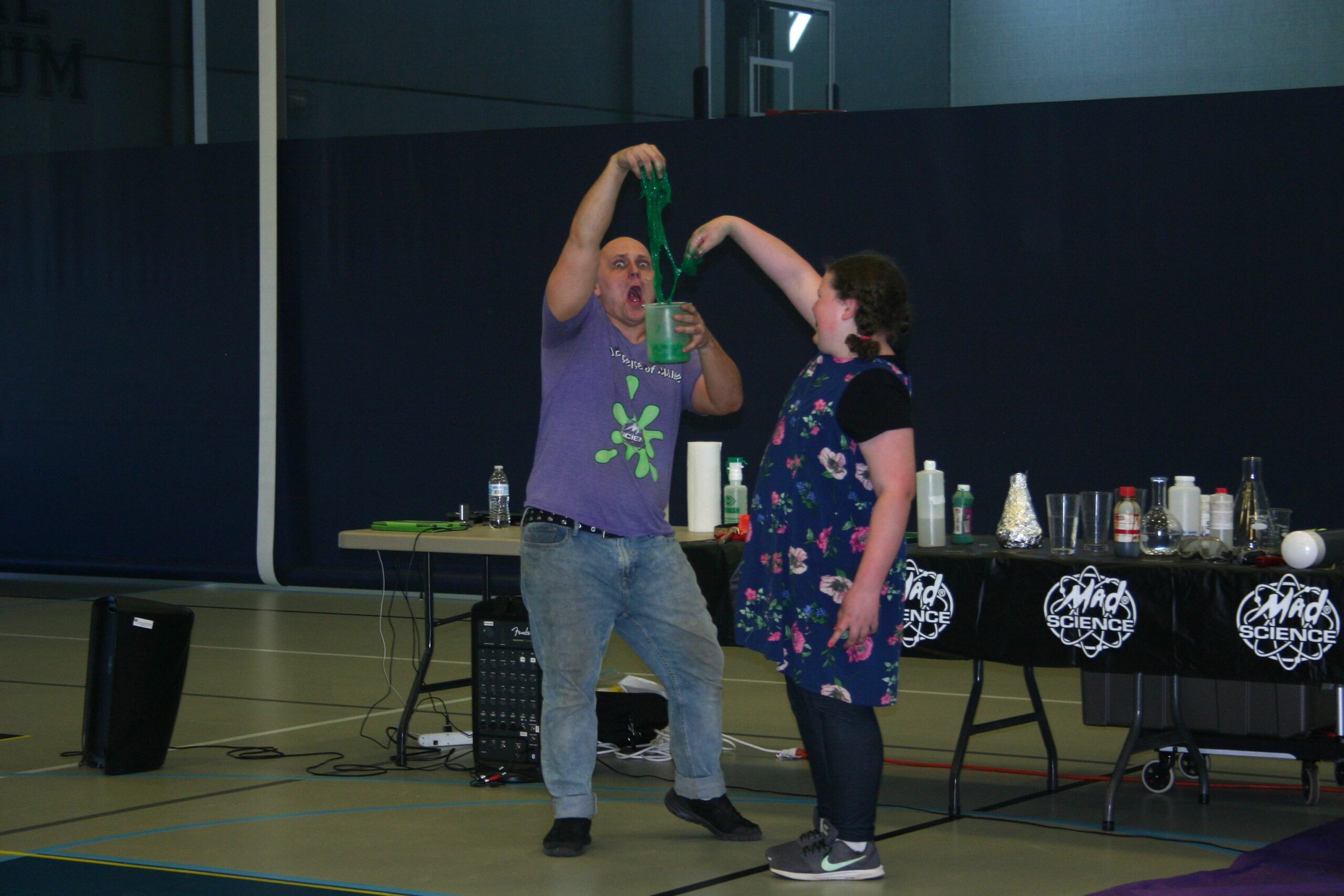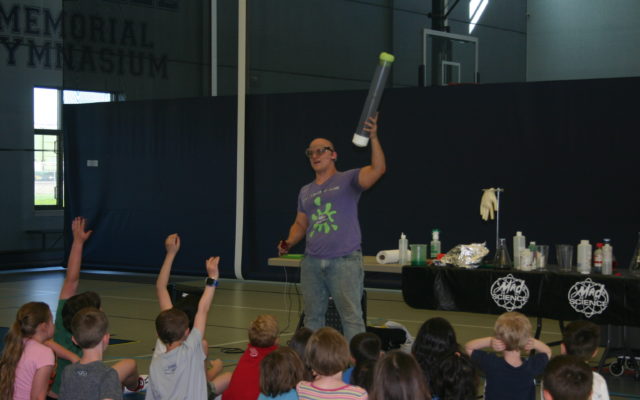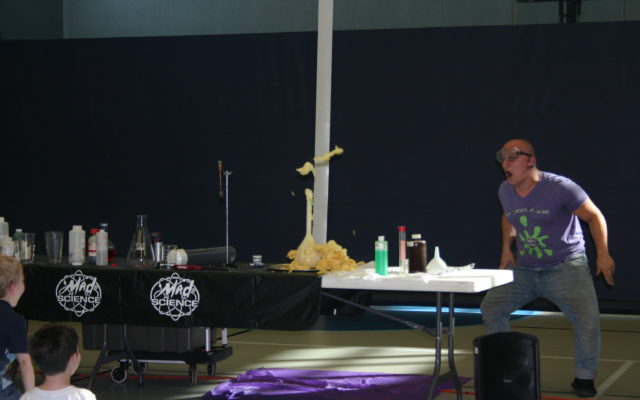
PRESQUE ISLE, Maine — Green slime and a “magic genie” were just two of many chemical reactions that youngsters witnessed, and at times assisted with, when a member of Mad Science of Maine brought the organization’s “Radical Reactions” show to Presque Isle.
More than 50 children gathered in the gymnasium at the Sargent Family Community Center on May 10 to watch Catalyst Corey, also known as Corey Cleary, special event and assembly show specialist for Mad Science of Maine, mix chemicals and perform scientific experiments that sometimes had explosive, but safe, results.
Cleary asked three favors of his audience before the show: to never be afraid to ask questions, stay behind the “yellow line of safety,” and, most importantly, have fun. His energy and enthusiasm for science kept the children entertained throughout, especially when he invited members of the audience to serve as his “assistant mad scientists” during experiments.
During one of the most popular experiments of the one-hour show, Cleary invited 9-year-old Taylor MacFarline of Presque Isle to help him make slime. He explained that slime is a polymer chemical made up of many small molecules called monomers. Slime’s main ingredient, polyvinyl acetate, is used to make Elmer’s glue because of its flexibility.
Cleary added green food coloring and sodium borate to the jar of polyvinyl acetate and asked MacFarline to reach in and stir the chemicals. Both scientist and assistant gasped as they pulled out the green slime, which stuck to their hands.
“I liked making the slime and pulling it out with my hands,” MacFarline said after the show. “I thought it was really cool.”
Mad Science of Maine, which is based in South Portland, has some 20 teachers who host interactive science education programs for children aged 4 to 12 at summer and vacation camps, in class workshops, at science-themed birthday parties and at after-school enrichment sessions.
As part of the traveling show, Cleary visits schools all over the state to give children hands-on knowledge of science’s most “radical reactions.” He has been as far south as Kittery and as far north as Madawaska. On May 10, he also visited students at Mapleton Elementary School.
“The shows give them a great way to connect what they’ve been learning from their textbooks to the real world,” Cleary said.
Though the radical reactions show proved fun for all involved, Cleary’s main objective was always to educate his audience. During one experiment, as white smoke flowed from the top of a flask covered with tinfoil, he ran around the gym and had his young pupils convinced that a genie would appear to grant them three wishes.
He later explained that the “genie” was actually a 30-percent solution of hydrogen peroxide. A lower solution of the chemical is often used for minor cuts, burns and scrapes.
But the experiments that excited everyone the most came near the end of Cleary’s show. He first used oxygen, fuel and methanal to shoot an apple from a large test tube into the air.
“I’m going to swish the tube around to create vapor, then pour out the excess water because the fuel is our most important property,” Cleary said.
After dumping the excess liquid into a beaker, he took a torch and held fire to the bottom of the test tube. The apple shot from the test tube into the air and landed on a nearby set of bleachers in the gym as many children laughed and shouted in amazement.
For the finale, Cleary poured two times the amount of hydrogen peroxide that he had used for the “genie” experiment into a wide flask with a long-tubed neck. He then poured in potassium oxide, a highly reactive chemical, and the yellow substance quickly oozed out of the flask and onto the table, leaving the children amazed.
“Every time I do a show I never know which experiment will excite them the most. That’s the best part,” Cleary said, before packing up his “lab” and heading off to inspire his next group of young mad scientists.
- Corey Cleary, special event and and assembly show specialist for Mad Science of Maine, gets ready to launch an apple into the air using oxygen, fuel and methanal while his young audience watches in amazement. Mad Science of Maine is based in South Portland and gives children aged 4 through 12 interactive opportunities to engage with science through after-school enrichment programs, in-class workshops, science-themed birthday parties and their traveling show program. (Melissa Lizotte)
- Corey Cleary of Mad Science of Maine reacts as yellow hydrogen peroxide oozes out of a test tube during the finale of his “Radical Reactions” show at the Sargent Family Community Center this past Thursday. As part of Mad Science of Maine’s traveling program, Cleary visits students all over the state of Maine and gives them hands-on opportunities to learn about science. (Melissa Lizotte)









